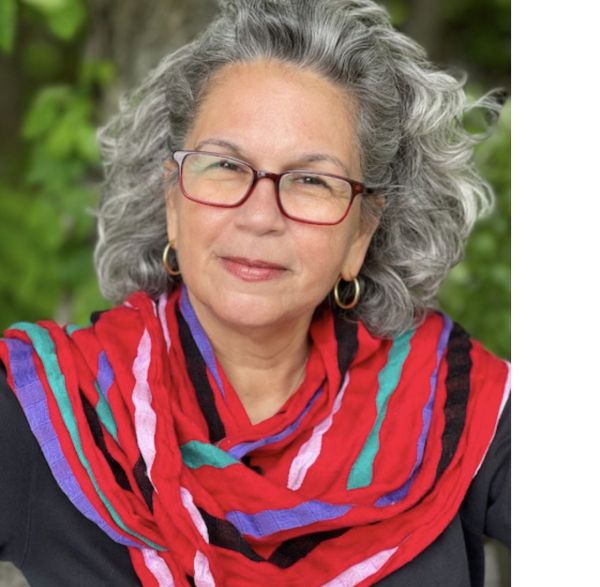colin powell school
Dr. Diana Punales Morejon, Director of The Psychological Center, migrated to the US with her family from Cuba to escape communism. Now, she is shaping the next generation of psychologists. With a focus on overseeing clinical teams and ensuring the competency of doctoral students, Dr. Morejon navigates the challenges of staying updated on evolving training competencies while finding deep fulfillment in nurturing socially conscious professionals. She also addresses socio-economic and systemic hurdles in accessing mental health, including implementing a sliding fee scale and other inclusive practices to increase accessibility.
Please share something about your personal and professional background.
I was born in Havana, Cuba and immigrated to the US when I was young with my parents fleeing from Communism. It was very difficult to learn English as no one in my family spoke English. As a child, I became the translator and cultural broker for my family which was both wonderful to help my family out in this way but also quite exhausting for a child.
Can you elaborate on your role in training doctoral students and overseeing clinical teams?
As the Director of The Psychological Center which is the training clinic and community mental health center, I run Clinical Supervisory Teams where doctoral student therapists present their clinical work. Additionally, I review the clinical training for each student to ensure that they are achieving the competencies that they need to attain as they progress through the program. Lastly, I oversee the administrative and clinical operations of The Psychological Center where over 50 doctoral student therapists treat patients.
What challenges and rewards do you find in this role?
One of the greatest challenges in my role is to be up to date on all relevant training competencies for doctoral students since we are an APA Accredited Clinical Psychology PhD Program. This requires my participation in a series of consortiums and organizations relevant to the training of doctoral students and ensuring that my own competencies as a Clinical Director are current.
One of the most rewarding aspects of my role is to be able to train the next generation of psychologists who are ethical, clinically competen,t and who uphold social justice in their clinical work.
Working with impoverished high-risk clinical populations presents unique challenges. What strategies do you employ to address socio-economic disparities in mental health care delivery and ensure accessibility for those in need?
The main strategy that we use to help address the socio-economic disparities in mental health care delivery and increase accessibility for those in need of mental health services is that we use a sliding fee scale to set fees for psychological services. I try to be as inclusive as possible and not only take into account the prospective patient’s income but also consider the number of dependents that they are responsible for and the rent/mortgage that they have to cover. We do not consider stable housing to be a luxury and therefore we discount rent/mortgage from the person’s income so as to have the adjusted fee be as equitable as possible. However, all that said, the mental healthcare system in the U.S. is broken in many different ways and it is a reality that obtaining mental health services can often be hard. We are not a free clinic and rely on patient fees to subsist. For patients who need free services, we recommend that services be sought out through public hospitals where the person can apply for charity care or through the NYC Program for Mental Health Referrals (dialing 988).
Can you say a bit about what brought you to CCNY and the Colin Powell School? How does CCNY differ from other colleges or universities you’ve been associated with?
I have been at CCY for quite some time and was delighted to have the Colin Powell School and feel honored to be a part of it. I believe that CCNY differs from other colleges and universities in that the faculty and staff that work here are committed in a genuine and serious work to supporting the academic experiences of our students who represent an incredibly diverse group of learners. Our graduates are often on the front lines of service provision to populations that historically and currently experience significant challenges in obtaining mental health care. I feel tremendous pride in being part of the Colin Powell School especially because of its commitment to civic and social justice leadership.
Please share something about your plans — regarding research, teaching, engagement — for the next couple of years.
For the next couple of years, I plan to expand our Sports Psychology Program as part of the Clinical Psychology PhD Program which is the only one of its kind in the CUNY system. I also plan to expand our Asylum Justice Program which I co-direct and which provides pro-bono psychological evaluations to individuals who are seeking asylum in the U.S. And I look forward to continuing to train future psychologists.
What would you want to make sure everyone knows about what makes the Colin Powell School special?
I would like to make sure that everyone knows that what makes the Colin Powell School so special is its commitment to supporting students, faculty and staff in ways that encourage growth, that fosters a genuine interest in community, and that develops real leaders who are focused on bettering the lives of those around them. It is an honor to be a part of such an endeavor.
